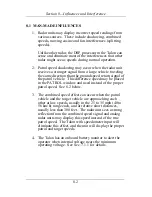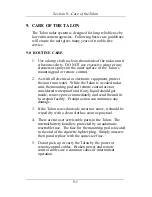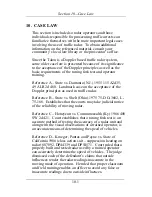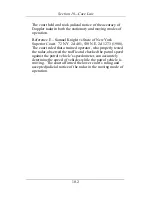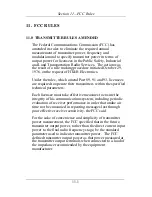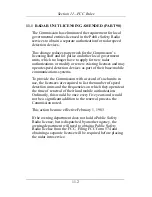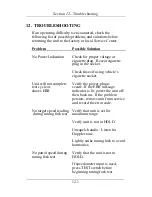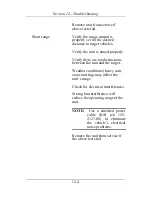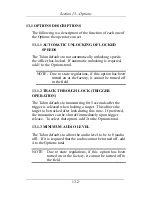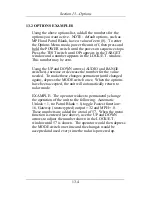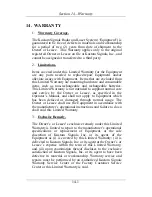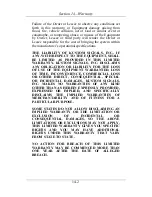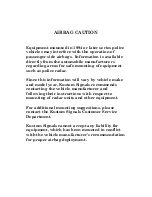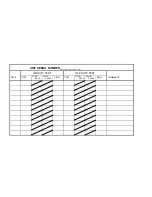
Section 11—FCC Rules
11.1
11. FCC RULES
11.0 TRANSMITTER RULES AMENDED
The Federal Communications Commission (FCC) has
amended its rules to eliminate the required annual
measurement of transmitter power, frequency and
modulation and to specify transmitter power in terms of
output power for licensees in the Public Safety, Industrial
and Land Transportation Radio Services. The action was
the result of a rule making procedure initiated October 29,
1976, on the request of HT&B Electronics.
Under the rules, which amend Part 89, 91 and 93, licensees
are required to operate their transmitters within the specified
technical parameters.
Each licensee must take effective measures to ensure the
integrity of his communications system, including periodic
evaluation of receiver performance in order that undue air
time not be consumed in repeating messages lost through
poor effective receiver sensitivity, the FCC said.
For the sake of convenience and simplicity of transmitter
power measurement, the FCC specified that in the future,
transmitter output power, rather than the direct current input
power to the final radio frequency stage, be the standard
parameter used to indicate transmitter power. The FCC
defined transmitter output power as that power measured at
the transmitter output terminals when connected to a load of
the impedance recommended by the equipment
manufacturer.







